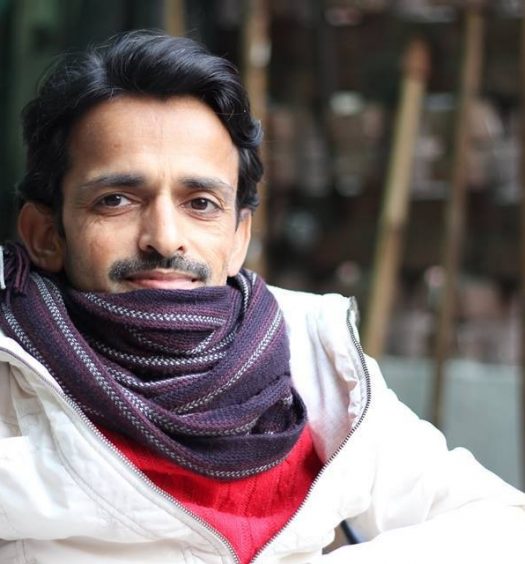My goal of writing is to create change – Chetan Bhagat
Noted Indian author Chetan Bhagat is no stranger to the world of films. Four of his bestselling novels have been made into films, with him penning the screenplay for them. His latest novel adapted into a film is Half Girlfriend, which also marks his debut as co-producer. We catch up with Bhagat to learn more about the science of adaptation, his style as an author and donning the hat of a film producer.

Chetan Bhagat
Are there any differences between the book and the film? If yes, what are they?
It’s an adaptation process and not a remake. I feel both are quite different as a process. Largely, it’s a faithful adaptation but there are some changes. That was the demand of the medium. Had we not done those changes it’d be a four-hour film. Then there are other tools that you use in cinema such as music and background score. These go on to only enhance your communication. Some minor plot changes are done, some sequences are combined and some tiny modifications were made. But largely, the characters, plot points and the message remain the same. I’d reiterate, it is a faithful adaptation.
With ‘Half Girlfriend’, I wrote about a rural boy who can’t speak English in a book written in the English language
When the film was being adapted, what were the discussions you had with Director Mohit Suri? What factors did you focus on?
The director hired the best screenplay writer, Tushar Hiranandani who is one of the top screenwriters in the industry. Ishita Moitra was hired for penning the dialogues. The writers kept on working on the script for six to nine months. When I read their final work, I quite liked it. There were a few points where I needed changes to be made, which were incorporated. Getting the language right was one of the major areas to focus on. Mohit got a language coach for getting the Bhojpuri right for the characters. Largely, I wasn’t a part of the screenplay writing process.
Also Read: Romance has an emotional connect with the audience – Mohit Suri
And why did you choose not to be part of the process?
In this film I already had a fairly large set of responsibilities on my shoulder. I was also co-producing it so I wanted to focus on that. I also wanted to write another book. I’d rather explore a new story than keep on re-writing the same story.
My goal of writing is to create change

Chetan Bhagat with Director Mohit Suri
How was the experience of debuting as a producer?
It was amazing! I have learnt so much in the last year. I made sure that I was on set every single day. I was looking after budgets, resources and permissions. As for permissions, I had to function as a ninja. Will the cops agree? Has the principal agreed to let us shoot a sequence? What are the costs? Do we need to change the caterer? (Laughs). I had to multitask in the truest sense and it was a lot of fun.
Half Girlfriend is a faithful adaptation with some change
Over the years, how have the protagonists of your books changed?
It’s not just about the protagonists of my novels. I feel India as a country has changed rapidly. My protagonists have become more small town now. I am taking more risks. Take for example my last book, ‘One Indian Girl’. There I experimented with my voice as a writer. I have written the entire book in a girl’s voice. I am becoming bolder. With ‘Half Girlfriend’, I wrote about a rural boy who can’t speak English in a book written in the English language. These are the risks that I am taking and enjoying thoroughly.
As an author, what does it mean to have your books adapted to feature films?
My goal of writing is to create change. Literature should do that. To that extent, if a movie is made it is great. Cinema has a larger reach. If the film does well, it’s even better because I get to expand my horizon. I get to make more films.
I try to use writing as a medium to observe and document changes in the society

Chetan Bhagat with Shraddha Kapoor
Do you mean also producing films not based on your books?
Yes, why not. But it depends entirely on how Half Girlfriend does. This is my first attempt as a co-producer so I am watchful of its results first. Right now, I have to contribute with my books to be a co-producer on the project.
It’s not just about the protagonists of my novels. I feel India as a country has changed rapidly
Lastly, you touched about bringing a change with your writing. Do you do it consciously with every book you write?
Yes, I do. I always write on social issues; that drives the theme of my books. Every book has a message. I try to use writing as a medium to observe and document changes in the society. Isn’t that nice?!



